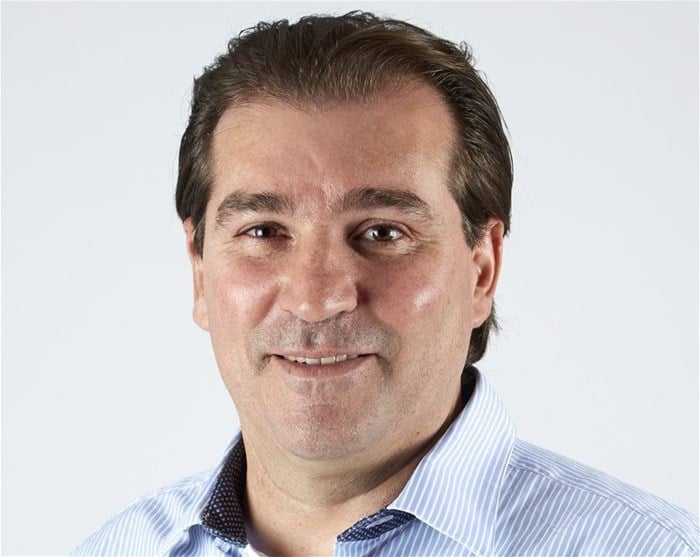
Marketing & Media trends
Industry trends
BizTrends Sponsors
Subscribe & Follow
#BizTrends2022: South African seafood to make waves globally

According to a recent Stanford-led study, while consumption per capita of beef has declined since the 1960s, that of seafood has more than doubled and all indications are that global fish consumption will increase nearly 80% by 2050.
The anticipated growth in demand for fish and shellfish – so-called blue foods – results from several factors: population growth, local changes in affordability and trade and culture, but the volume of fish consumption has little to do with increased wealth, the study reports.
"You don’t see people eating more fish overall as they get richer, but the type of fish they eat may change. At low incomes, people consume more blue foods if they’re affordable. At high incomes, people eat fish if they have some sort of preference for it: health, or sustainability, or just taste," says lead study author Rosamond Naylor, the William Wrigley Professor of Earth System Science at Stanford University.
High-end seafood gets the nod in SA
In South Africa, retailers have put greater focus on high-end seafood as locked-down Saffas spent the country’s rolling lockdowns in the kitchen brushing up on their culinary skills. Before Covid, South Africans consumed about 12kg of seafood on average per person, per year.
There’s been a definite shift in interest for seafood products. Today’s seafood trends range from ready-made seafood meals to new upscale exclusive seafood ranges like the Forage and Feast range from Checkers endorsed by South Africa’s only Michelin-star chef, Jan Hendrik van der Westhuizen.
For higher earning South Africans, diversity is key. This consumer group is after niche offerings, such as specialty fish lines like salmon, sole, and kingklip portions, as well as scallops and value-added lines like ready-crumbed mussels and crumbed/coated prawns.
The demand for affordable offerings has also increased. We’ve seen higher demand for horse mackerel and snoek, the seafood of choice for lower-income households.
There’s a high probability that the seafood you’ve bought from many of South Africa’s top retailers was actually processed and packed by Atlantis Seafood Products, which was transferred to beneficiaries of a trust in a ground-breaking B-BBEE transaction in 2016.
From humble beginnings in 2003 with just five staff members, ASP now employs some 350 people, who in turn support over 1,500 people in the previously disadvantaged Atlantis community.
But Covid has not been kind to them and those in the extended fisheries value chain, with lockdowns affecting both imports and exports, limiting the extent to which raw materials were available. This had a massive impact on Atlantis Seafood Products, but the factory is back to full strength and is working with Atlantis Foods and retailers to reinvent their seafood offer.
Growing seafood export market for SA
As the third-largest fresh and frozen fish processing and packing factory in South Africa, ASP has set its sights firmly on growing its share of seafood exports; the quality of seafood from South Africa, particularly hake, being world-renowned.
Over two-thirds of South Africa’s hake catch is for export and the quality of our hake is world-renowned, so it is in high demand. With limited natural resources we must make sure we extract the maximum value from that catch.
ASP is the major producer of prime fresh-quality hake fillets and portions which are exported by air freight to a major retail chain in Spain, one of the largest seafood consumers per capita in the world. Our facility produces between 700 and 1,700 tonnes for fresh export annually.
Raw hake received at the factory is hand filleted and portioned to ensure nothing goes to waste. Hake is hand filleted and skinned – a decision we’ve taken deliberately as we believe this improves the quality and enhances our ability to extract as much value as possible from the hake we received.
We switched from automated filleting machines to hand filleting to produce a better yield and create new jobs. By employing a labour-intensive process, we’ve managed to create an additional 48 skilled jobs per shift.
Balancing job creation, transformation and sustainability
Achieving the balance of unlocking the economic potential of South Africa’s oceans to create jobs, but at the same time ensuring we protect those natural resources is a focus area for the Department of Forestry, Fisheries and the Environment, and the deep value chain of the fisheries sector.
South Africa recently celebrated 16 years since becoming the world’s first Marine Stewardship Council (MSC)-certified hake trawl fishery and was recertified in February 2021. Trawled hake annually generates an estimated ZAR4.5bn (US$284m), making it the most valuable commercial fishing activity in South Africa.
The hake trawl MSC-recertification was indeed an exciting moment for the South African fishing sector. It means we are on the right track and are meeting local and international hake demands while minimising the impact on the environment and other species.
Even with the uncertain future of fish and seafood exports due to the supply chain still somewhat shaken and constantly evolving, the global market is estimated to reach US$336bn (ZAR5.3t) by 2025, a positive forecast for the entire industry.
The systemic shock of Covid certainly had a global impact on fish and seafood trends and it is tricky to predict what tomorrow’s species-specific trend and its availability will be, but there is certainly one trend we should continue to follow: Finding sustainable, environmentally conscious, and cost-effective ways to bring fish from the sea to the plate.
Related
Government addresses misinformation on abalone fishing 21 Feb 2025 Aquaculture training sparks career change for Zambian farmer 12 Jul 2024 Ocean Basket, Abalobi partner to promote sustainable, fair fishing practices 11 Jun 2024 FAO report: Global seafood reaches record high, led by aquaculture boom 10 Jun 2024 Marine protected areas safeguard more than ecology – they bring economic benefits to fisheries and tourism Mark John Costello 2 Apr 2024 Sea Harvest Group delivers strong result in a tough environment 6 Mar 2024 Small-scale fishers could be allowed to catch new species Liezl Human 5 Mar 2024 Western Cape small-scale fishers finally get their rights Liezl Human 16 Nov 2023













